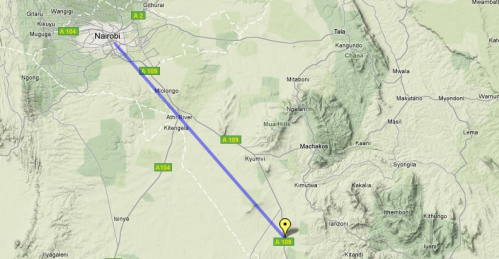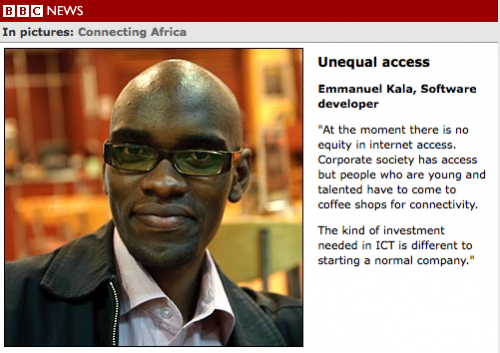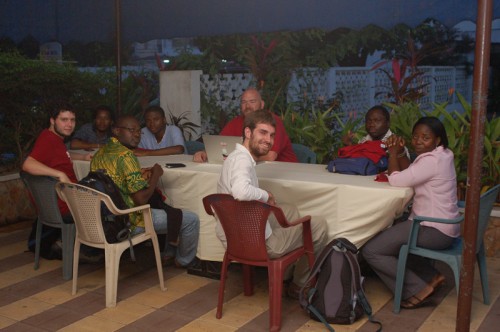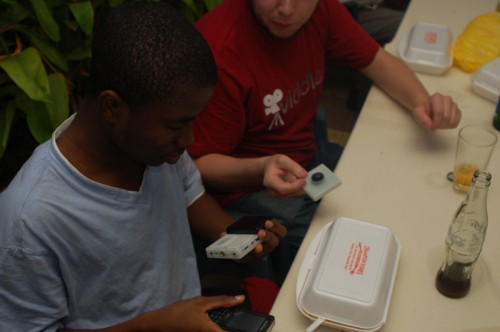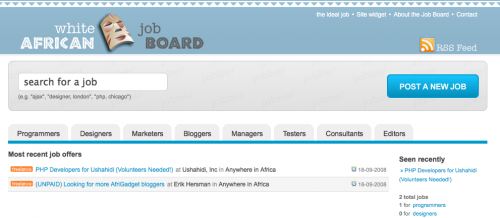I’ve written a couple of times about the lack of seed funding in Africa, and how to find the entrepreneurs to fund if you did have seed capital. We’re starting to see a few angel investors like Sean Murphy of Chembe Ventures making their way around the continent, but they are not nearly enough to fulfill the capacity of ideas and individuals who need startup capital.
Crowdfunding
 Just this week the CrowdFunding South Africa site was launched (look for them at SXSW this week in Austin), working off the theory that, “South Africa cannot compete in the global online sector if it isn’t funding start-ups at the beginning stage.” Their plan is to do this by getting:
Just this week the CrowdFunding South Africa site was launched (look for them at SXSW this week in Austin), working off the theory that, “South Africa cannot compete in the global online sector if it isn’t funding start-ups at the beginning stage.” Their plan is to do this by getting:
“1000 people get together investing R1,000+ each by pooling the money into the Crowdfund.”
Seed funding is risky, and the idea of Crowdfund is to distribute that risk over a number of people thereby reducing it for everyone. Their goal is to invest 50,000-100,000 Rand in 10-20 “excellent ideas”, and also provide legal advice and contracts, designers, specialized developers, bandwidth, hosting, office space and running costs, mentorship and time saved.
This idea is similar to what Ben White at VC4Africa is thinking about, basically a “Kiva on steroids” as Bill Zimmerman puts it. A way for you to invest in people and projects with larger sums of money and greater risk and returns than on the microfinance investing sites.
Finding the Real Tech Entrepreneurs
Both the Crowdfund and VC4Africa initiatives are excellent steps in the right direction, as they both provide platforms that allow less-knowledgeable investors (of tech in Africa), and deeply involved African tech investors alike, to get involved without too much risk at one time. There remains one issue to be solved though, and that is finding the entrepreneurs to invest in.
Any VC worth their salt will tell you that they invest in the people behind good ideas, not just the product/service that the entrepreneur is trying to create. So, how do you find these individuals? It’s generally through your network, people you trust, that serve as a filter to guide you towards the promising ones. That’s the same in Africa as it is anywhere else, yet here in Africa, there are fewer of these trusted intermediaries who act as filters (especially for international capital), than there are in the US or Europe.
In a meeting this last week of the people behind Limbe Labs (Cameroon), Appfrica Labs (Uganda), the iHub and the iLAB (Kenya) we discussed how these spaces could act as that type of a filter for investors and funds. Each of us sees more young tech entrepreneurs every day, and sees these individuals consistently, than most any other single person could by themselves.
Could these labs, which are now showing up all over Africa, be a way for entrepreneurs to make themselves known, show their stuff, then be introduced to the funds and investors with a greater level of confidence than normal?


